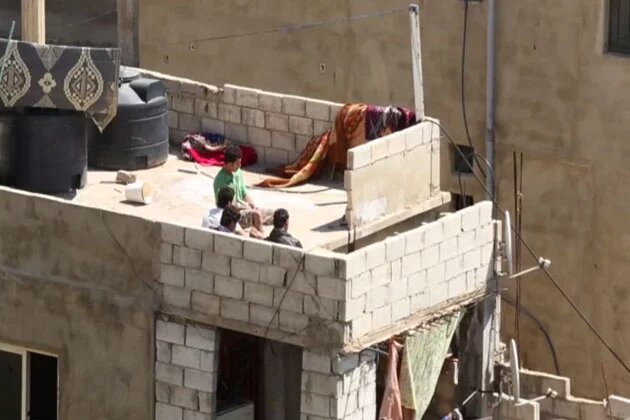
Sixty-six years after the nakba, the catastrophe of 1948, the Syrian crisis constitutes another turning point in the history of the Palestinian people. Forced to leave the refugee camp of Yarmouk at the outskirts of Damascus, around 150.000 Syrian Palestinians have embarked on another journey without a destination – but with a feeling of being trapped in ta perpetual repetition of the past.
Many of them have found yet another temporary existence in Lebanon, where they now try to “forge a life out of necessities.” However, they thus become refugees twice over, subject to the double stigma of being both Syrian and Palestinians. Whereas they had become an integral part of Syrian society, enjoying social as well as political rights, they are now forced to start back from zero and in completely different conditions.
By retracing individual trajectories of exile and destitution – but also of hope, and fierce resistance against a seemingly overpowering destiny – the film director Carol Mansour questions notions such as identity and home for a people whose existence revolves around a feeling of constant loss.
Without heroic hyperbole, she portrays the Palestinian struggle not only for what might be regarded as a normal life, but their search for identity and a sense of belonging in the space demarcated by names and labels such as “Palestinian“, “Syrian“, “refugee“.
Just like the camp of Yarmouk used to be, We can’t go there now, my Dear is a caleidoscope of the dreams, yearnings, and political fights of Palestinians – and a homage to their unabated hope to see this dream come true: “If not today, then tomorrow. And if not tomorrow, then the day after.“
This film was produced in cooperation with Heinrich Böll Stiftung Beirut and we are going to show it tonight at the Metropolis Empire Sofil cinema.
For further reviews, please click: